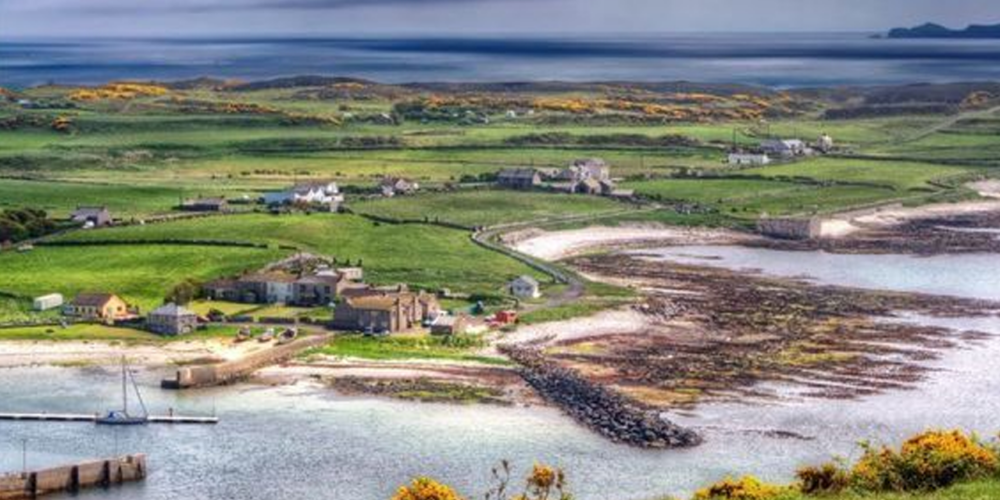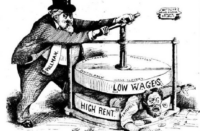Living on Rathlin Island, six miles from Ballycastle in North Antrim, Mary Cecil ponders life and chronicles her thoughts in poetic form. “The Rathlin Poet”, as she is known, has penned a great many poems, including anti-war verses: hardly surprising for the daughter of a soldier psychologically scarred during service in WW2.
Rathlin, surrounded by many shipwrecks, is a place where all faiths share the cross-community graveyard at St Thomas’, so it is no surprise that amongst them lie servicemen of various nationalities. The slaughtered of two world wars lie in this place, presented to the island by the sea, human wrecks laid ashore for eternal rest.
At a time when the Irish government is stealthily pushing its 26-county republic away from the principle of neutrality that has persisted since its very foundation, pushing towards conscription of its Defence Forces into EU and NATO armies, pushing its people to war, this poetic offering from Cecil, “The War Game” is timely.
When Irish, UK, EU and US governments scowl upon citizens that justifiably question their policies or dare to challenge or seek explanation for their enabling of what seems like the perpetual slaughter of Ukrainian and Russian citizens, rather than seeking ceasefire and peace, it is refreshing and reassuring to hear this poetic voice rise and challenge the status quo.
The War Game
They want to conscript my heart
Into the killing machine
Of war without end
Abandon my soul
In the battlefield’s of conscience
Weaponize my mind
And deny my humanity
On the altars of hate
Kill my belief in the oneness of all
To commit to not seeing
What must be seen
Beyond the screens
Where war is a game
Sanitised and sacrosanct
Turn off the light of understanding
Feel the hate
Of the merchants of war
Till the end of our world
(Reproduced with permission from the author, copyright Mary Cecil).
Cecil considers her anti-war poems to be amongst her most important work and at a time when there is continuous western momentum driving nations into war rather than towards unity and peace, who could disagree that the world needs to hear their message? Observing that money-making on the back of war is colossal, she views money, power and greed as being the great levers generating this seemingly unstoppable momentum. Like many, she believes the end to this conflict can come through peace negotiations, and questions why they aren’t happening now.
Cecil suggests that a great philosophy to embrace is “the Earth is but one country and mankind its citizens” and explains that her passion for writing anti-war poetry rises from the unseen and immeasurable damage that war causes, her personal experience triggered in turn by her father’s experience of war. Her father whom she describes as highly intelligent and a great humanitarian, served in WW2 where what he witnessed affected him profoundly, drove him into alcoholism and in turn made her childhood a struggle. She experienced poverty and insecurity when growing up, something she describes as a real cost of war, something that goes down through the generations.
Poignant as Cecil’s poem is she also provides a chillingly relevant quote from Nazi Herman Goehring:
“Of course the people don’t want war. But after all, it’s the leaders of the country who determine the policy, and it’s always a simple matter to drag the people along whether it’s a democracy, a fascist dictatorship, or a parliament, or a communist dictatorship. Voice or no voice, the people can always be brought to the bidding of the leaders. That is easy. All you have to do is tell them they are being attacked, and denounce the pacifists for lack of patriotism, and exposing the country to greater danger.”
— Herman Goehring at the Nuremberg trials
This Nazi quote on how to drag the people along into war, “into the killing machine” as Cecil describes it, sounds familiar, doesn’t it?
They will not conscript Cecil’s heart, comrades, nor mine.
Peace, Land, Bread.
- The Ballycastle Comrade






